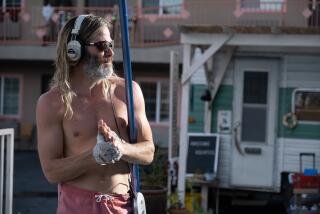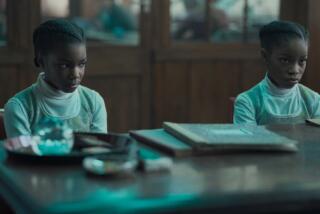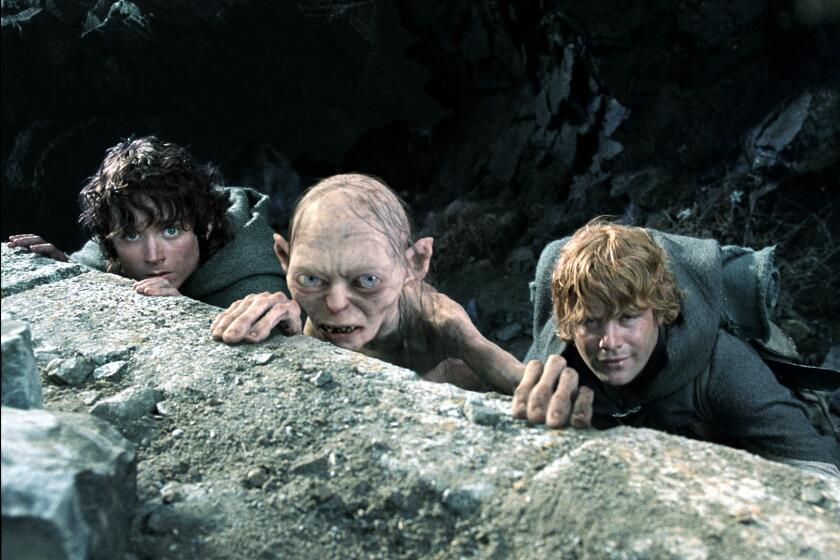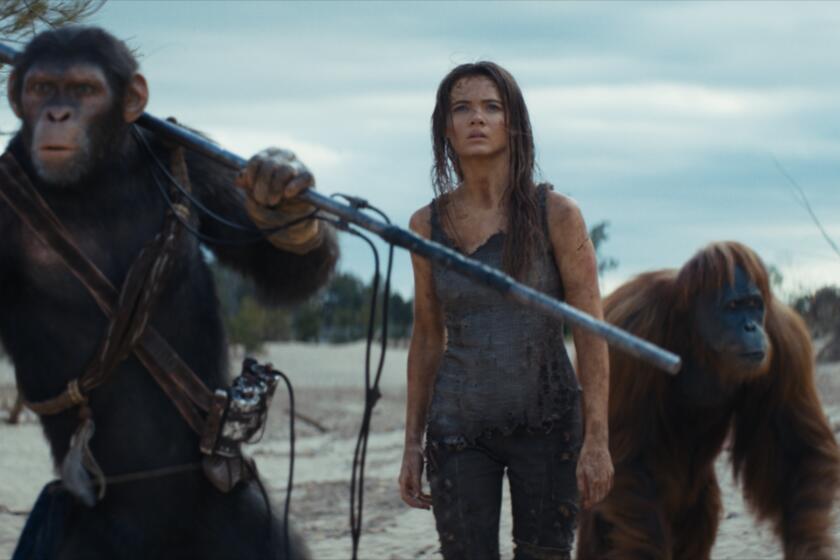Reclaiming ‘Cinderella’ From the Ashes
“Though it has its moments,” Kenneth Turan concludes his patronizing review of “Ever After” (“Cinderella as the Original Spice Girl,” Calendar, July 31), it “never completely finds its footing, either in its century or our own.” Here, Turan completely misses the point, not only of the movie, but of the entire nature and function of myth.
First of all, I must ask, what does he mean by “its” century? The 19th century of the Brothers Grimm version? The 16th of the Perrault? Or the Disney animated feature of our own century? Such is the universality of myth, whose main function is to serve as a template for each era to express its own values and teach them to its children. Thus Shakespeare reinvented “Hamlet,” “Macbeth” and “Romeo & Juliet,” only to be re-reinvented over and over; “Hamlet” most recently surfaced as the basic story of Disney’s “Lion King.”
I can only applaud this new Drew Barrymore Cinderella as long overdue. Having been raised on Grimm and Disney versions, I, for one, wasted years waiting patiently for, my “prince” to come. I eschewed positive action and felt uncomfortably like a fraud every time I enjoyed even the faintest measure of success. After all, wouldn’t it soon be midnight and my fairy finery turn to rags? Stories can be very powerful things, and I was raised on those of an earlier era, stories that may have served my grandmother well but certainly not me.
What then is the heart of the Cinderella story, constant from telling to telling? It is the story of virtue (especially female virtue) rewarded at last, but it remains for each culture to fill in what this virtue consists of and how it is rewarded. Perrault emphasizes forgiveness (“Only true kindness is worthy of a fairy’s gift”). The Grimms’ focuses on faith in a higher power (“Cinderella knew what no one else did: that her hazel tree had magic in it”). The Disney version (which comes to mind when people today think of Cinderella) seems to favor humility.
What the new version accomplishes is to reinvent Cinderella as a young woman who earns her happiness with courage as well as kindness. She is not afraid to stand up and speak out for what she believes. She is not afraid to be herself, and it is this quality in the end that wins her the prince--unlike in earlier versions, a prince worth winning, according to modern sensibilities. Turan dismisses all this by predicting that the movie will “find favor with the self-esteem builders of the world.” Again he misses the point.
The glory of this new Cinderella is that not only does it speak to our modern values, but it does so without compromising any of the true magic of the fairy tale. I sat through the movie, enchanted, drinking it in like a potion, and so did my entire family. Never before have I seen a fairy tale done so well, the closest being Jacques Demy’s “Peau d’Ane (Donkey Skin).” What both movies have done is to manage to make the characters human. In spite of the old-fashioned dress and setting, they are recognizable to us as real people, with understandable emotions. It is this quality, not the spouting of any sort of political agenda, that makes them engaging to a contemporary audience.
It is almost impossible in this town to get a movie made for women and, especially, girls. They point to the latest “girls” movie that didn’t earn $100 million. They tell you to up the violence. They suggest that you change the girl to a boy. Then they look at you and deliver that final blow--they tell you it’s “soft.”
I am not a man. My private parts do not cower at the mention of the word “soft.” In fact, I think it is time we had some more softness in this world. Nor am I turned off by the review’s headline comparison with the Spice Girls movie--there was a movie that found its highly under-supplied audience, and has the box office to prove it.
It’s time to break the cycle. When producers are persistent enough, and a studio is brave enough, and talent is gifted enough to make a movie like “Ever After,” I think it’s time The Times does its part by assigning someone who can appreciate it to write the review. Perhaps that might mean giving it to a woman.
*
Writer-producer Dolly Gordon is a script consultant and a partner in Girls Rules, a film production company that specializes in projects for women and girls.
More to Read
Only good movies
Get the Indie Focus newsletter, Mark Olsen's weekly guide to the world of cinema.
You may occasionally receive promotional content from the Los Angeles Times.






